Intellectual Property (IP) is defined as the creation of the mind that includes inventions, patents, designs, any type of art, etc. The primary purpose of establishing intellectual property rights is to foster an environment that allows both corporations and individuals to have the freedom to create and innovate, says Marija Lazic on a report published by legaljobs.io
IP is a major driving force behind global economic growth. This is the reason why experts spend a lot of time gathering intellectual property facts and figures. By doing this, experts can measure intellectual property’s efficacy in promoting creativity and development.
Some interesting Intellectual Property Stats
- 27.7% of jobs in the US come from intellectual property-intensive industries.
- 38.2% of the US GDP comes from intellectual property-intensive industries.
- Intellectual property theft costs the US $225 billion to $600 billion annually.
- The average cost of a data breach in the US is $8.64 million.
- The average cost to defend a patent lawsuit exceeds $3 million.
- Around 12,000 intellectual property cases are filed each year.
The US has held the top spot for tech innovations for a long time. However, reports have shown that eastern countries are catching up, as the World Intellectual Property Organisation (WIPO) statistics indicate. In 2018, the US held the number one spot with 22% of tech innovations, while China was slightly behind with 21%.
The US Department of Commerce states that over 40 million jobs (that’s 27.7% of jobs) come from intellectual property intensive industries. For this reason, the US Intellectual Property Enforcement believes that intellectual property infringement can hurt not just the economy but the US labour force as well.
38.2% of the US GDP comes from IP intensive industries. There’s a strong connection between intellectual property, business development, and economic growth, and numbers prove it. IP intensive industries account for 38.2% of the country’s GDP, amounting to over $6 trillion. (Patent and IP Statistics)
Let’s look at some IP statistics:
1. The US government sector received only 1% of the patent share in 2016
As patent and IP statistics show, private companies received 85% of the patent share, 9% was assigned to individuals, 4% to the academic sector, and only 1% to the government sector. The National Science Foundation believes that the government’s small share shows that intellectual property is not the main focus. (Patent and IP Statistics)
2. 90% of US exporters are patent-holding firms
According to intellectual property news delivered by the World Trade Organisation ambassador in 2018, Dennis Shea, as much as 90% of exporters are patent-holding firms. These firms turned out to be better exporters because the number of export transactions increased significantly after the patent acquisition.(Patent and IP Statistics)
3. Copyright workers earn 38% higher wages than other US workers.
US ambassador Dennis Shea pointed out that US industries that rely heavily on IP are most likely to prosper. He used the copyright-based industry as an example. According to intellectual property data, IPR-intensive industries generate many jobs and contribute to the US’s economic growth. These industries generated 5.6 million jobs, where the average income of these workers was 38% higher than the US workforce’s average income.(Patent and IP Statistics)
4. IP accounts for 70% of the value of publicly listed corporations.
It might be challenging to estimate the contribution of IP to the US economy. Still, according to the president’s Economic Report to Congress in 2006, 70% of publicly traded companies’ value was attributed to intangible assets. (Patent and IP Statistics)
5. The number of US patents filed via PCT increased by 2.8% from 2018 to 2019.
The US patent applications increased by 2.8% in 2019. This percentage is an improvement from 2018, as evidenced by the number of patents by country in 2018. Back then, the number of US patents filed dropped by 1.6% compared to 2017. (WIPO Annual Report 2019)
6. 12% of US applications for patents in 2019 were in the field of computer technology.
The US held the top spot when it came to applications for patents in the field of technology in 2019, followed by China and the Republic of Korea that dominated the field of digital communication. (WIPO Annual Report 2019)
7. According to World IP Indicators 2019, the US was the second topmost filer of patents in the world.
A closer look at WIPO’s patent statistics by country shows that the US’s numbers in 2018 saw a decline. The number of patents filed by the US dropped by 1.6%. Despite this decrease in the number of patents filed, the US still ranked second worldwide. (WIPO Annual Report 2019)
8. The number of filed trademark applications increased to 673,233 in 2019.
Trademark applications hit a record high in 2019, reaching 673,233 applications. The number of US trademark certificates was over 2.5 million at the end of the same fiscal year. (Patent and IP Statistics)
9. The US’s trademark office holds 4.5% of trademarks filed worldwide.
WIPO’s trademark statistics 2019 show that the US’s trademark office accounted for 4.5% of the entire trademark filing activity. The report also stated that the US trademark office had the second greatest number of trademarks filed with 640,181 trademarks.(WIPO Annual Report 2019)
10. Intellectual property theft costs the US between $225 billion and $600 billion annually.
IP theft is taking a financial toll on the US economy. The Intellectual Property Commission estimates that intellectual property theft in the form of counterfeit goods, trade secret theft, and pirated software costs the US economy $225 billion to $600 billion. According to intellectual property crimes statistics, that’s about 1% to 3% of the US’s GDP. (IP Theft Statistics)
AFFECTED BY IP INFRINGEMENT? GET A FREE QUOTE
11. Counterfeit drug sales in the US amounted to more than $75 billion.
Many people think that IP theft doesn’t do any harm, aside from hurting the economy. However, NCPC maintains that counterfeit drugs have caused a lot of harm to Americans due to substandard quality or mislabelling. (IP Theft Statistics)
12. 21.7% of American CFOs think their companies were victims of IP theft.
In a survey conducted among CFOs, 21.7% confirmed that IP theft happened to their companies in 2018. However, a lot of them admitted that there might not be sufficient proof to confirm their allegations.(IP Theft Statistics)
13. 44% of seized goods are fake watches and jewellery
Almost half of the items seized in the US in 2018 were watches and jewellery, accounting for 44% of all seized items. Apparels and other accessories came in second at 22% of total products.(IP Theft Statistics)
14. IP theft trade statistics show that $1.03 billion worth of counterfeit commodities from China were seized in the US.
In 2019, the US Customs was able to confiscate counterfeit items valued at $1.03 billion, all of which originated in China. The value of seized goods significantly surpassed the value of seized goods from Hong Kong in 2019, amounting to $397.28 million. (IP Theft Statistics)
15. In 2019, the US Customs was able to seize 15,811 products from express delivery services
The US confiscated 15,811 items and 8,982 products from express and mail delivery in 2019. This further hammers home the FBI Director’s statement that defeating IP theft requires vigilance in all sectors. It’s not just the government’s responsibility to keep a watchful eye on the situation if we want to see intellectual property infringement statistics drop. (IP Theft Statistics)
16. The average business’s cost of a data breach in the US is $8.64 million.
In 2020, the cost of an IP data breach to small enterprises is $8.64 million. Last year, it was $8.19 million. These figures might seem like a small amount for big businesses, but corporations’ collective losses are substantial enough to become a threat to US economic security.
On a global scale, data breaches cost $3.86 million per data breach based on recent data breach statistics. (IP Theft Statistics)
17. Around 5,000 patent cases are filed each year in the US.
Since 2012, 5,000–6,000 patent cases have been filed each year. From 2006 to 2011, there were between 2,580 and 3,527 cases, only to increase significantly in 2012. Experts believe that technological advancements are to blame for this increase in patent case filings. (IP Theft Statistics)
18. According to intellectual property litigation statistics, 76% of cases end up in a voluntary settlement.
It’s said that most intellectual property cases end up in a settlement. This is because trials could drag on for years; the longer the trial goes on, the more costly it becomes. At some point, both the plaintiff and the defendant come to the realisation that going to trial isn’t worth the cost and effort. And that’s why a lot of companies seek to settle as soon as possible.(IP Theft Statistics)
19. Patent lawsuits increased by 9% in January 2020 (year-over-year).
According to statistics on IP theft, lawsuits filed against patent infringement saw an increase of 9% in January. Lawsuits filed by patent assertion entities are said to have contributed to this increase.(IP Litigation Statistics)
20. In 2020, the FBI has made 19 arrests on account of Chinese economic espionage.
FBI Director Christopher Wray reported that ever since the Department of Justice launched the China Initiative campaign in 2018 against economic espionage, cases against China have been piling up. In the first half of the 2020 fiscal year, the FBI has already made 19 arrests on Chinese economic espionage. Wray further stated that based on FBI statistics on IP theft, there are still more than 1,000 pending cases against China.
21. Patent assertion entities file 84% of patent lawsuits.
According to statistics, patent assertion entities, also known as patent trolls, make up 84% of all patent lawsuits every year. This figure isn’t surprising since patent lawsuits by patent trolls have increased activity by 500% in the past decade. Their lawsuits have affected over 10,000 companies and cost companies around $80 billion per year. (IP Litigation Statistics)
22. The average cost to defend a patent lawsuit exceeds $3 million.
A lot of companies choose to settle immediately when they are sued for patent infringement. This is because the cost to defend against the lawsuit usually exceeds $3 million. For companies that make less than $10 million, this cost could be detrimental to the business. (IP Litigation Statistics)
23. Around 12,000 intellectual property cases are filed each year.
There are approximately 18,400 cases filed in federal court every year. Of that figure, 12,000 are intellectual property cases.(IP Litigation Statistics)
24. Mediation costs $100,000 per intellectual property case.
The cost of intellectual property litigation skyrockets the moment it is filed. This is why some legal advisers urge clients to go through mediation with the plaintiff due to cost. The cost of a patent infringement case with $10 million to $25 million at risk could range from $2 million to $9 million. In contrast, mediation for the same risk could go as low as $100,000.(IP Litigation Statistics)
25. Only 13.4% of cases resulted in damaged awards.
According to intellectual property cases statistics within US states, it takes roughly about 2.4 years for an intellectual property infringement case to go to trial. Of those that go to trial, only 13.4% are awarded compensation for damages and losses. One controversial intellectual property infringement lawsuit was the case of technology giant Apple against conglomerate Samsung on the basis of design and utility patents. The lawsuit dragged on for seven years, with the court finally awarding Apple $539 million. (IP Litigation Statistics)
Conclusion
There is no question that intellectual property statistics are essential to understanding the nation’s innovation and development direction. The figures can tell us how well the country is doing with respect to the world’s figures.
All these intellectual property facts from Marija Lazic are essential because intellectual property is one of the significant economic growth factors.
However, the question remains if these figures related to patents and trademarks are sufficient to understand intellectual property complexities thoroughly. Even with companies obtaining legal rights to ideas, creativity, and invention, it doesn’t guarantee a steady growth in the economy. One factor that threatens intellectual property and the economy is intellectual property theft.
The intellectual property statistics listed above illustrate the effects of intellectual property theft on the economy. In-depth intellectual property analysis isn’t necessary to deduce that infringements have already cost countries billions of dollars and millions of jobs.
The FBI Director called on society to join a campaign to put an end to, or at the very least, reduce the number of infringement cases.
The advancement of technology and the ease of obtaining information through digital means double the predicament. That’s why all sectors must participate in strategies to keep intellectual property crime statistics under control.
AFFECTED BY IP INFRINGEMENT? GET A FREE QUOTE
How the CRI Group™ can help you tackle IP infringement
Infringement of IP rights threatens the fabric of national economies, endangers safety and frequently kills. It devalues corporate reputations, hinders investment, funds terrorism, and costs hundreds of thousands of people their livelihood annually. (ICC)
Our IP Investigations include 1) Trademark Investigations; 2) Intellectual Property Acquisition Services; 3) Patent Investigations; 4) Brand, Media and Internet Monitoring Services; 5) Anti-Counterfeiting Programs; 6) Brand Integrity Programs; 7) Copyright Abuse Investigations; 8) Cyber Surveillance; and 9) Litigation Support.
CRI Group’s Intellectual Property Investigations team helps companies identify threats to IP and confidential information internally and throughout their supply chain, develop the appropriate mitigation strategies and investigate suspected infringements.
For further information on IPR infringement or to book a meeting with our experts, click here.


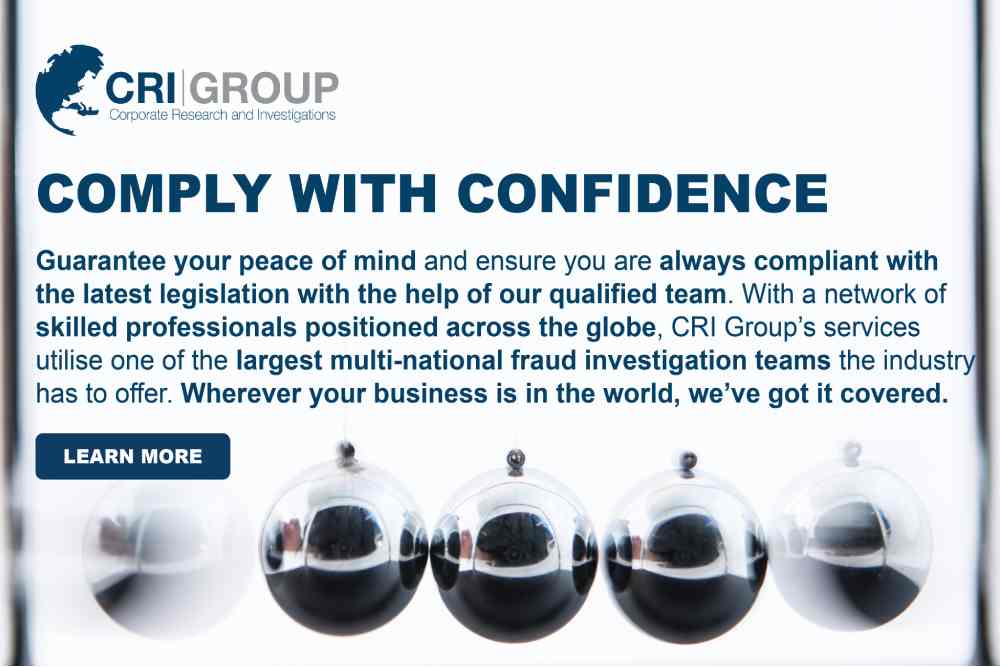
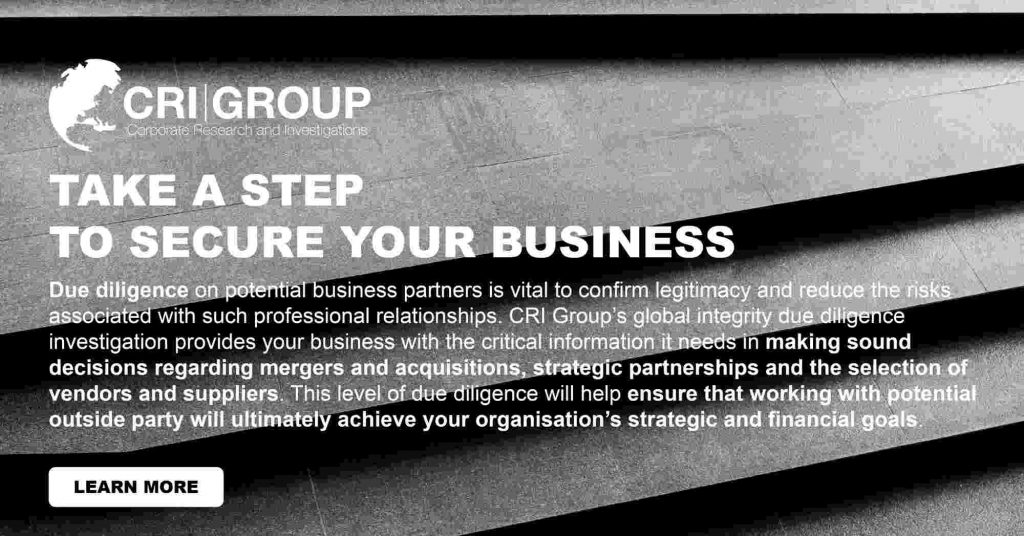
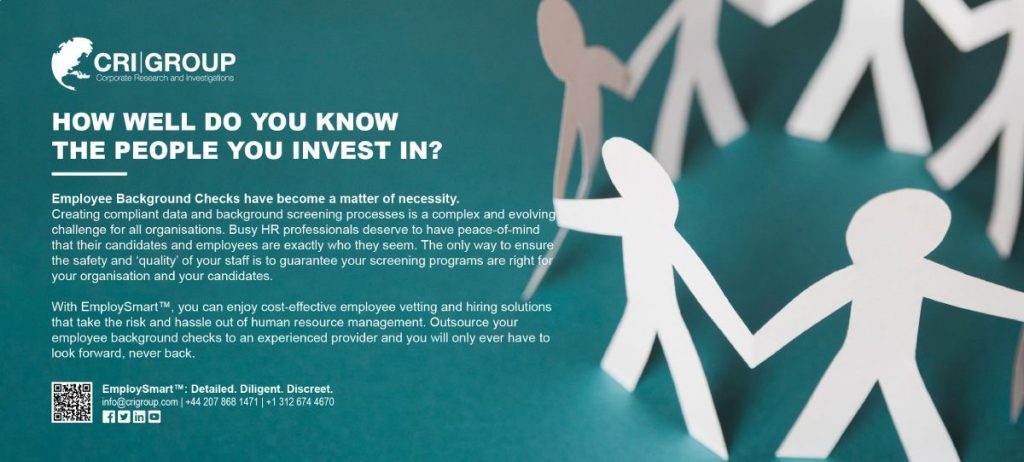


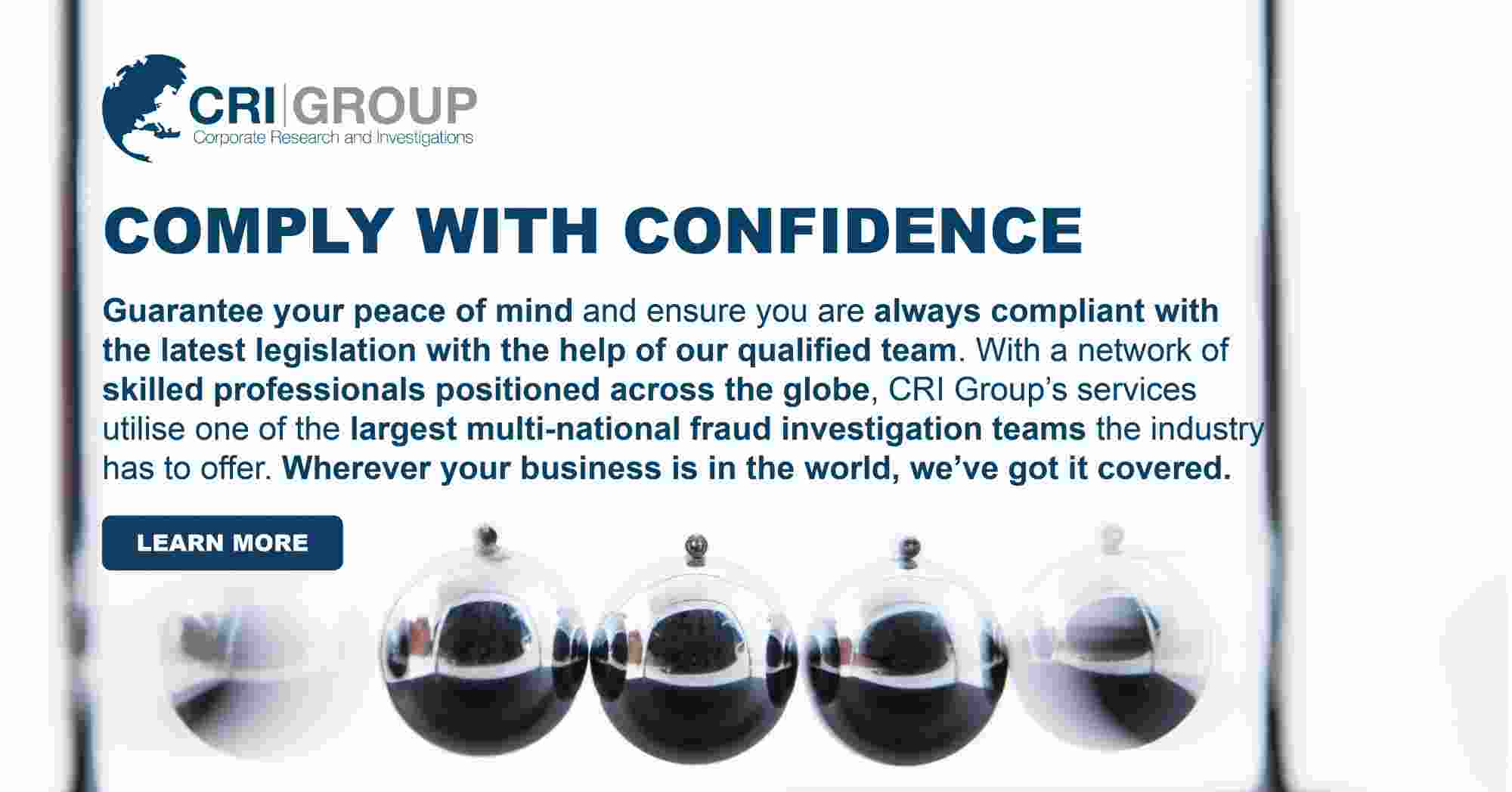
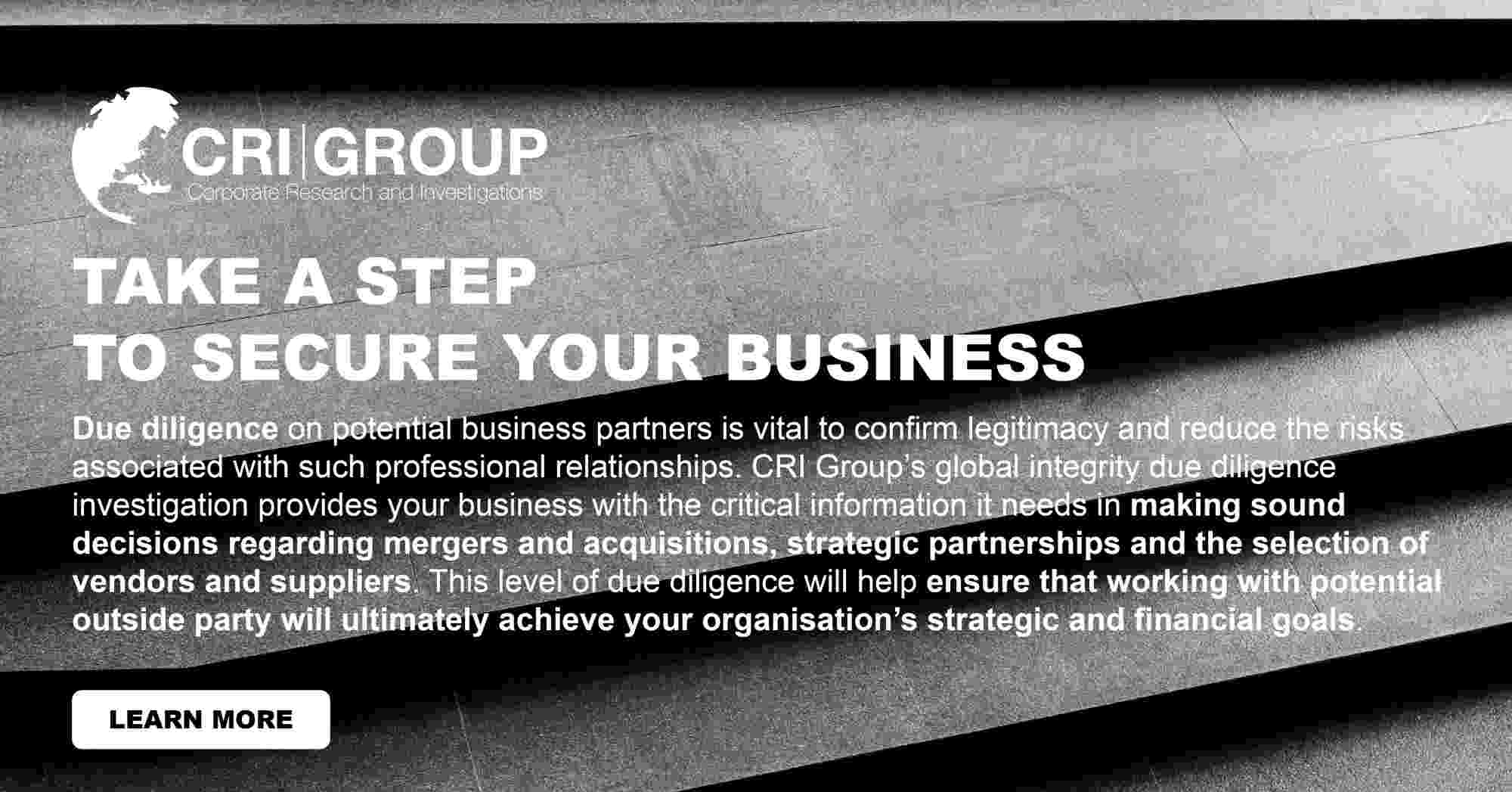
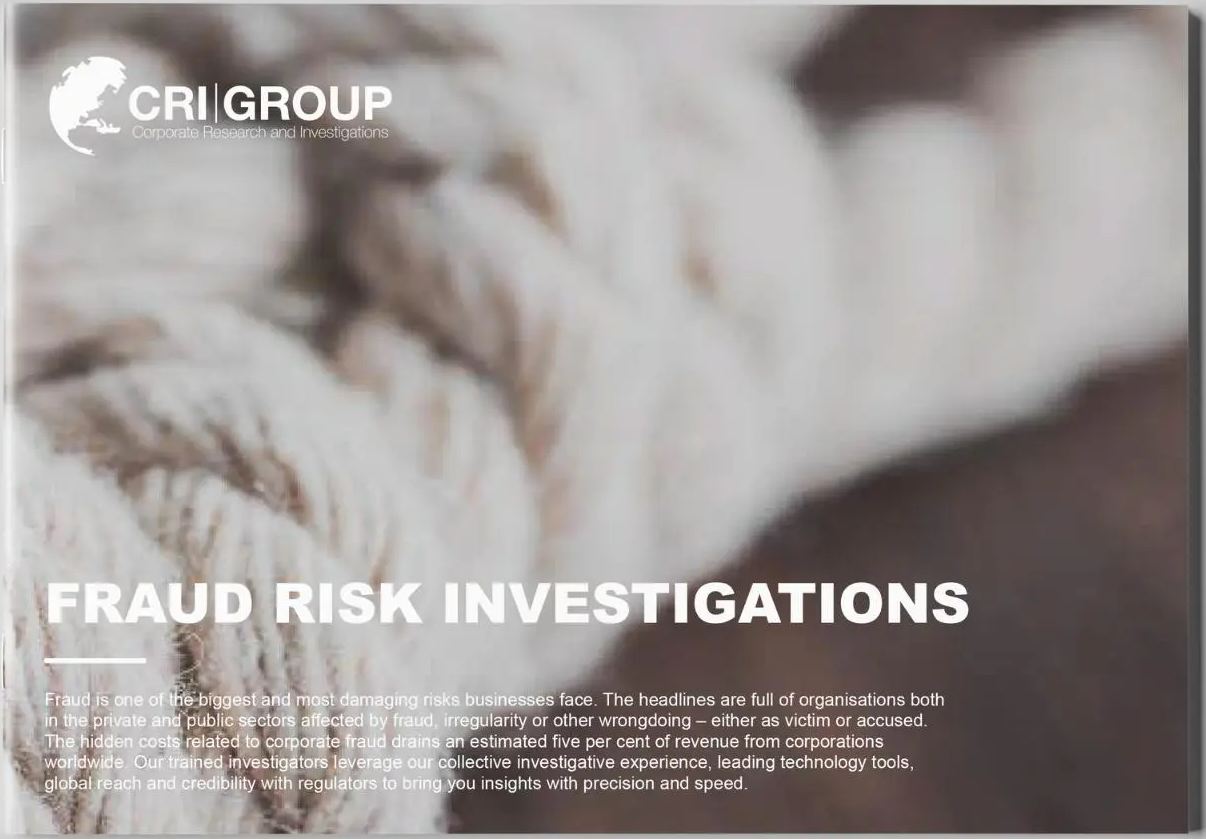


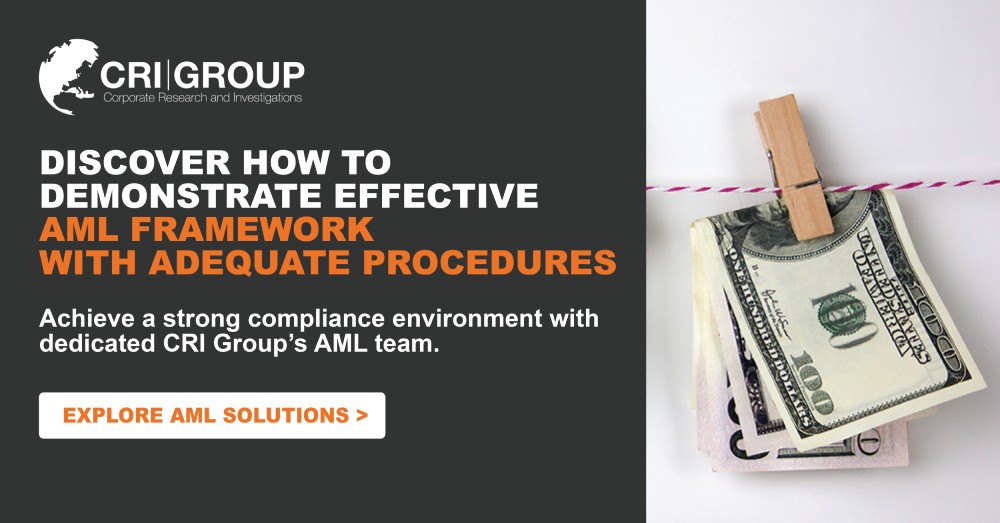

CONTACT US
Headquarter: +44 7588 454959
Local: +971 800 274552
Email: info@crigroup.com
Headquarter: 454959 7588 44
Local: 274552 800 971
Email: info@crigroup.com
NEWSLETTER SUBSCRIPTION